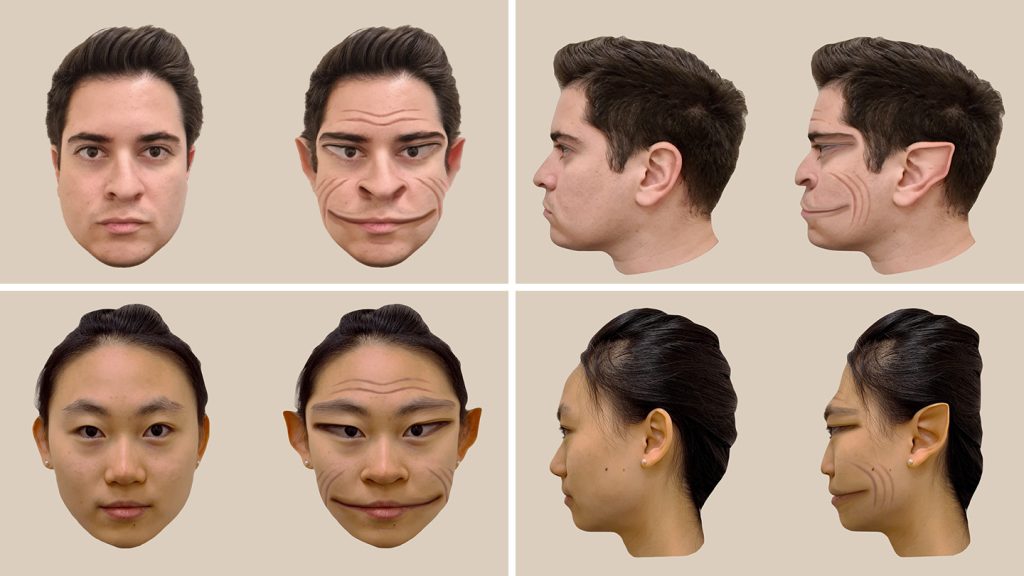People with prosopometamorphopsia, or PMO, experience distorted images when they look at faces. A new study conducted by researchers at Dartmouth College aimed to replicate the visual distortions experienced by a 58-year-old man who has had PMO for nearly three years. The altered images were created to closely mimic the “demonic” distortions reported by the patient, marking the first time such images have been designed to replicate a patient’s visual experience.
This visualization of the distortions faced by individuals with PMO is said to have a significant impact on understanding the severity of the condition. The patient involved in the study reported not wanting to go to the store as other shoppers appeared to him as “an army of demons.” PMO is poorly understood, with only a few cases reported since 1904. Patients may experience various facial distortions, ranging from extremely stretched features to moving positions or changing sizes of facial features.
The visualization created in this study is specific to the patient involved and may not apply to all individuals with PMO. However, it serves as a helpful educational tool for understanding the potential distortions that individuals with PMO may face. The unique aspects of this patient’s case allowed researchers to accurately depict his distortions, such as the distinction of seeing distortions only in faces viewed in person and their constant presence rather than intermittent occurrences.
The visualization aims to raise awareness among clinicians about this underdiagnosed condition. It is often mistaken for a psychiatric issue like schizophrenia rather than a neurological one. Proper diagnosis of PMO can lead to effective treatment of underlying conditions causing the distortions. While the exact mechanisms behind PMO distortions remain unknown, a better understanding could improve the quality of life for affected individuals and contribute to general knowledge about facial processing.
The team led by psychologist Antônio Mello hopes that the visualization will aid in diagnosing PMO accurately and educate more people about this condition. They have received feedback from over 70 individuals experiencing symptoms of PMO, many of whom have been misdiagnosed. By showcasing the severity of the distortions faced by individuals with PMO, this study sheds light on a rare condition that affects the way people perceive faces and aims to bridge the gap in understanding the mechanisms behind such distortions.


